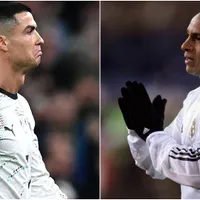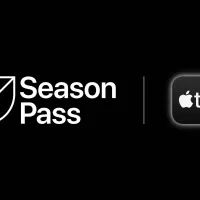The sports media world has been buzzing with speculation that Apple could make a massive move to acquire ESPN from Disney in a deal worth up to $50 billion. This potential blockbuster acquisition could have huge implications for the sports broadcasting landscape and how fans consume sports content.
Apple’s foray into sports and ESPN interest
While Apple is better known for iPhones and Macs, the tech giant has been slowly building up its sports portfolio. It signed a 10-year deal with Major League Soccer in 2022 reportedly worth $2.5 billion. This brought all MLS matches to the Apple TV streaming platform, attracting new subscribers. Apple also offers MLB games on Fridays as an add-on to Apple TV+, and there was talk that they tried to pursue Sunday NFL Ticket rights when they expired in 2022. Snatching up ESPN could accelerate Apple’s sports content ambitions exponentially.
Our Pick:Includes: Every regular season game, MLS Cup Playoffs, Leagues Cup, & More |
 |
For Apple, buying ESPN would provide instant access to some of sports’ most prestigious and lucrative broadcast rights. This spans NFL, NBA, MLB, College Football, Tennis Grand Slams, and much more. In the soccer realm, it would add rights to EFL, FA Cup & League Cup matches from England; La Liga & Copa del Rey from Spain; Dutch Eredivisie, Belgian Pro League; and Swedish Allsvenska competitions.
It would enable Apple to land rights deals that could take years to accumulate organically. Apple could incorporate ESPN content into its Apple TV app and streaming platforms. This would bolster its original content library, which still lags behind competitors like Netflix and Disney+. Live sports stand out as ‘DVR-proof’ programming that subscribers find hard to cancel. The tech giant would also gain ESPN’s brand equity and production capabilities. Apple could cross-sell sports packages to its existing user base of nearly 1 billion iPhone owners globally.
Why Disney Could Sell
For Disney, offloading ESPN makes some financial sense despite its profitability. ESPN has been weighed down by declining cable subscriptions as viewers cut the cord for online streaming. Selling ESPN could free up resources for Disney to focus more on content for Disney+ and Hulu as its future revenue drivers. Disney CEO Bob Iger has already suggested they are open to “strategic partnerships” related to ESPN amid pressures on linear TV. Unloading ESPN would raise cash to reinvest in new media businesses, eliminate long-term risks from cord-cutting, and reward shareholders.
NBC, ESPN and traditional powers not afraid of Apple
The incumbent sports media giants do not seem frightened by Apple’s potential entry into the market. Both Disney (which owns ABC and ESPN) and NBC have asserted confidence that their cross-platform reach and production capabilities give them an edge over tech firms.
ESPN chairman Jimmy Pitaro stated that Disney has closed recent rights deals despite not always offering top dollar, proving the value of the brand, promotional strength, and ability to expand audiences. NBC Sports chairman Mark Lazarus echoed a similar sentiment. He said comparable financial bids still favor NBC due to its linear and streaming distribution scale. Both emphasized that tech companies are not yet willing to invest in production to the same degree.
The litmus test will come when bidding opens for the next NBA rights deal in 2025 – expected to be worth over $75 billion. While Apple may make an ambitious play for streaming coverage, traditional media firms believe its infrastructure gives them resilience.
The consequences for sports fans
For sports fans, Apple buying ESPN could be a net positive. Apple would likely integrate ESPN’s linear channels, on-demand content, and digital offerings into its Apple TV platforms. This would make it easier for streaming-first audiences to access ESPN’s unrivaled sports coverage.
Apple could experiment with new broadcast technologies like targeted ads, integrated sports betting, AR overlays, and alternate camera angles. It remains unlikely that marquee events would disappear entirely behind a paywall. Owning vital sports rights, however, would raise antitrust issues for Apple.
Hurdles and uncertainties
Of course, there are still questions about whether a deal emerges at all. Apple would need to pay a 30-50% premium on ESPN’s estimated $40 billion valuation to convince Disney to sell its crown jewel. Both Apple and Disney have limited track records of mega-mergers. ESPN also has long-term contractual agreements with distributors and advertisers that limit radical changes to its business model. There is no guarantee Apple can generate sufficient revenues from sports subscriptions to justify the substantial upfront costs. Regulators may block the deal or place restrictions around Apple monopolizing key sports rights. And other tech and media giants like Amazon, Google, Microsoft or Comcast could enter the bidding war.
While still speculative, Apple acquiring ESPN is a captivating possibility. It would fuel Apple’s ambitions in sports entertainment while helping Disney transition to streaming. For now, sports leagues seem eager to have tech platforms bid up rights values and traditional networks do not perceive tech giants as a major threat. Ultimately, this deal’s impact would come down to how Apple executes on integrating ESPN into its ecosystem. But the prospect of these two titans joining forces illustrates the rapidly evolving nature of live sports in the streaming era.
PHOTO: IMAGO /photothek















